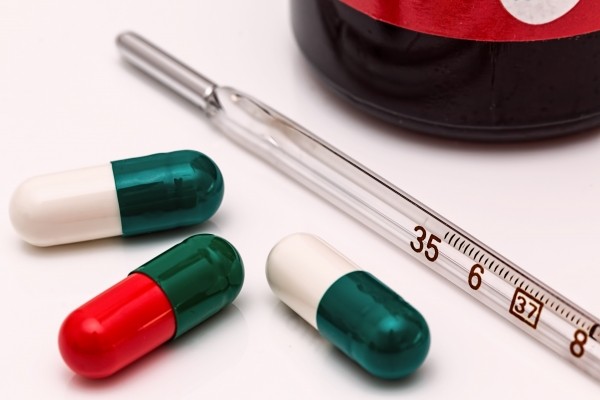
With the high amount of flu cases this season, it is important to pay extra mind to hygiene habits in order to stay healthy. In the event that you do come down with the flu, take the necessary measures to care of yourself throughout the duration of your illness. While of course you must take care of yourself overall during the flu, it is also important to pay attention to your dental health when fighting illness. Here are measures that can be taken to ensure a healthy mouth in addition to a healthy body.
While brushing and flossing daily is always necessary, it is important to maintain these habits when you’re sick — even when you don’t feel like it. Please do not share a toothbrush at any time, but this is especially relevant when you are battling a cold or the flu. This will prevent the spread of germs to another person and prevent you from catching any other sickness while your immune system is susceptible. Despite popular belief, it is not necessary to replace your toothbrush after you have recovered. Dentists recommend that you replace a brush after three to four months of use. It is unlikely that you will catch the same illness you had just experienced, but replacing your toothbrush is a matter of personal discretion.
When battling a nasty cough or a sore throat, one may be tempted to soothe the pain with cough drop after cough drop. In this case, choose a sugar-free option and avoid ingredients like fructose and corn syrup. Turning to sugary cough drops for relief can be the equivalent to sucking on hard candy. When these cough drops sit in your mouth, cavity-causing bacteria uses the sugar as fuel to produce acid that creates cavities.
If your symptoms include vomiting, you may be tempted to brush your teeth right away. Try to resist this urge for at least 30 minutes. Directly after vomiting, teeth are coated in stomach acid, so brushing too soon can rub acid all over the surface of your teeth. Instead of immediately brushing, swish and spit with a mixture of water and one teaspoon of baking soda, which will wash away stomach acid.
Doctors often stress the importance of drinking fluids, and your dentist agrees. Staying hydrated prevents dry mouth, which can lead to cavities. Because medicines that are commonly prescribed or recommended to treat cold and flu symptoms — such as decongestants and pain relievers — can cause dry mouth, it is important to drink plenty of fluids to counteract the effects. You might reach for a sports drink to replenish electrolytes or tea to soothe a sore throat, but water is the best option. Sports drinks contain large amounts of sugar that may cause cavities. If you do need the warming relief of tea, avoid additives such as sugar or lemon. Bacteria that causes cavities feed off of the sugar, and lemon is an acidic substance that may damage your teeth.